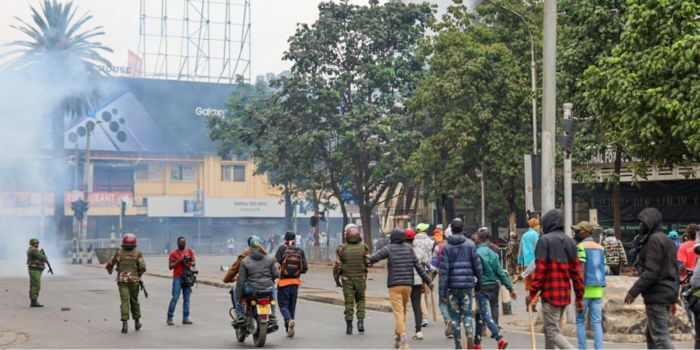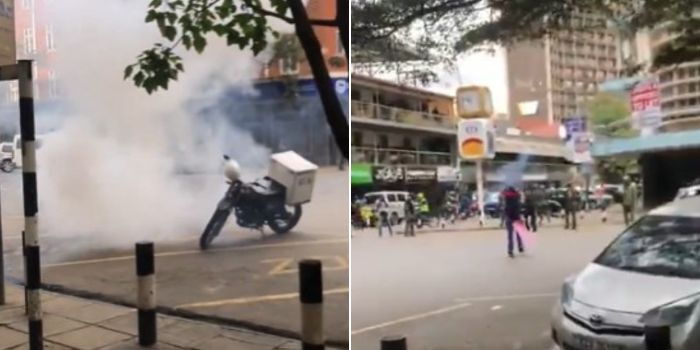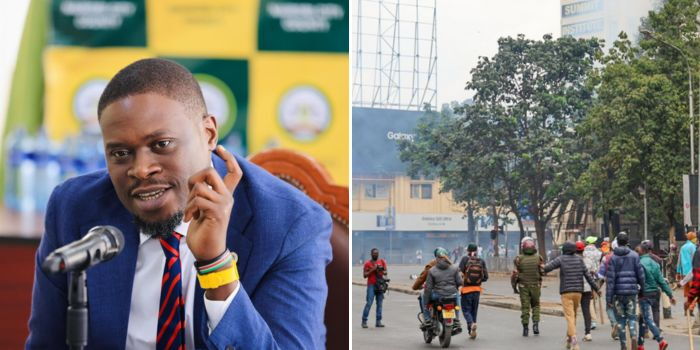A dark underbelly of Kenya’s political manipulation has surfaced following recent protests in Nairobi, with self-confessed goons now speaking out on their exploitation and betrayal by those who hired them.
The hired disruptors, many from informal settlements like Kibera and Korogocho, have lifted the lid on a disturbing scheme that saw them used as pawns to break up peaceful protests held in memory of slain protester Albert Ojwang on Tuesday, June 17.
In a revealing report aired by Citizen TV, the men confessed to being mobilised by shadowy figures and promised Ksh2,000 for the day’s chaos. But for most, the pay never came. Some were handed a paltry Ksh50, while others walked away with nothing but injuries and regret.
“They said we would get the money after the work was done, but we were left with nothing,” one of the young men lamented, his face still bruised from clashes with vigilante groups who turned against them during the unrest.
The goons reportedly numbering over 80 in just one group, were armed with sticks and unleashed terror in the CBD. Shops were looted, peaceful protesters were attacked, and Nairobi descended into mayhem. Eyewitness videos captured law enforcement standing idly by as the violence unfolded, sparking speculation of police complicity or deliberate negligence.
The recruits claim they were assembled at known spots such as Greenpark and Dennis Pritt Road, then ferried into the city on boda bodas in coordinated waves of infiltration. But instead of being protected or rewarded, they were ambushed by angry residents and business owners whose lives and livelihoods were upended.
Several of the goons now bear physical scars, broken limbs, head trauma, and psychological wounds, as evidence of how quickly they were discarded once their purpose was served.
As the dust settles, public outrage has turned toward political leaders allegedly involved in orchestrating the violence.
One name repeatedly mentioned is that of Swaleh, a familiar figure with alleged ties to political mobilisations in Nairobi. Swaleh is said to have gone into hiding upcountry, with unverified footage circulating online showing him on his knees, apologizing to unknown parties.
Nairobi Governor Johnson Sakaja has found himself in the crosshairs of the controversy. Online rumours suggested he had secretly funded the operation, meeting with Swaleh, vocal activist Gaucho, and several unnamed politicians to greenlight the mission.
“I was not even in the city that day,” Sakaja stated, producing travel records and receipts showing he was in Lugari on official duty. “These claims are false and malicious.”
He also denied any meeting with Swaleh or Gaucho in the lead-up to the protest and described the allegations as part of a smear campaign aimed at tarnishing his administration.
This incident adds to a growing concern about the use of vulnerable youth as disposable political tools. With Kenya’s youth unemployment hovering at crisis levels, informal settlement dwellers are often recruited en masse, promised quick cash, and sent into dangerous, often illegal, operations.
“We are dealing with a generation that’s both angry and desperate,” said political analyst Njeri Mwangi. “As long as the system continues to use them instead of empowering them, we’ll keep seeing scenes like this.”
This revelation arrives at a tense time in Kenya’s political calendar. With protests, policy debates, and civic movements becoming more frequent and more disruptive, there’s an urgent call for transparency and accountability.
As public trust in institutions wanes, stories like these only deepen the divide between citizens and the political class.
For now, those exploited in this most recent scheme are left wounded, unpaid, and perhaps worst of all, forgotten.
But their testimony may spark a necessary reckoning: one that forces the nation to confront who’s really pulling the strings behind the chaos and at what cost.






